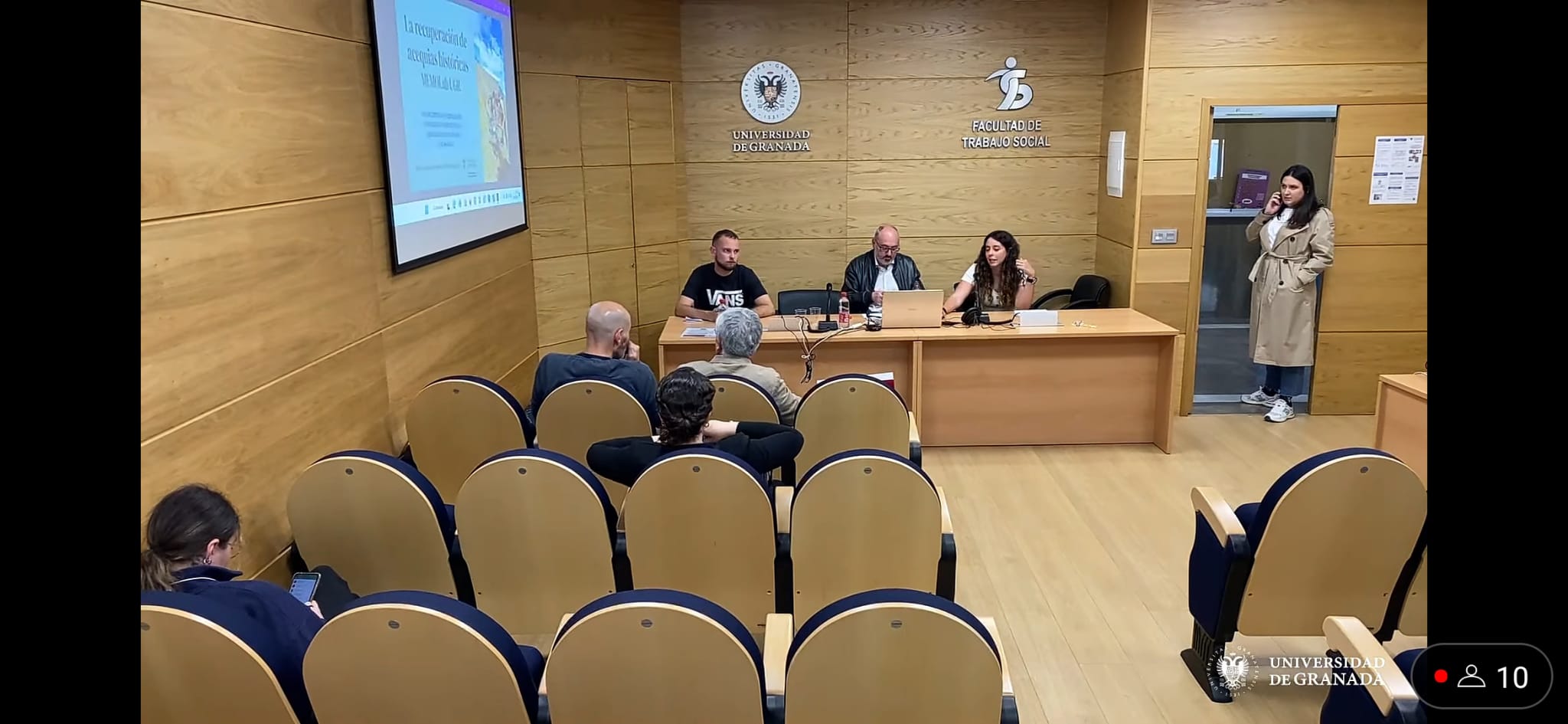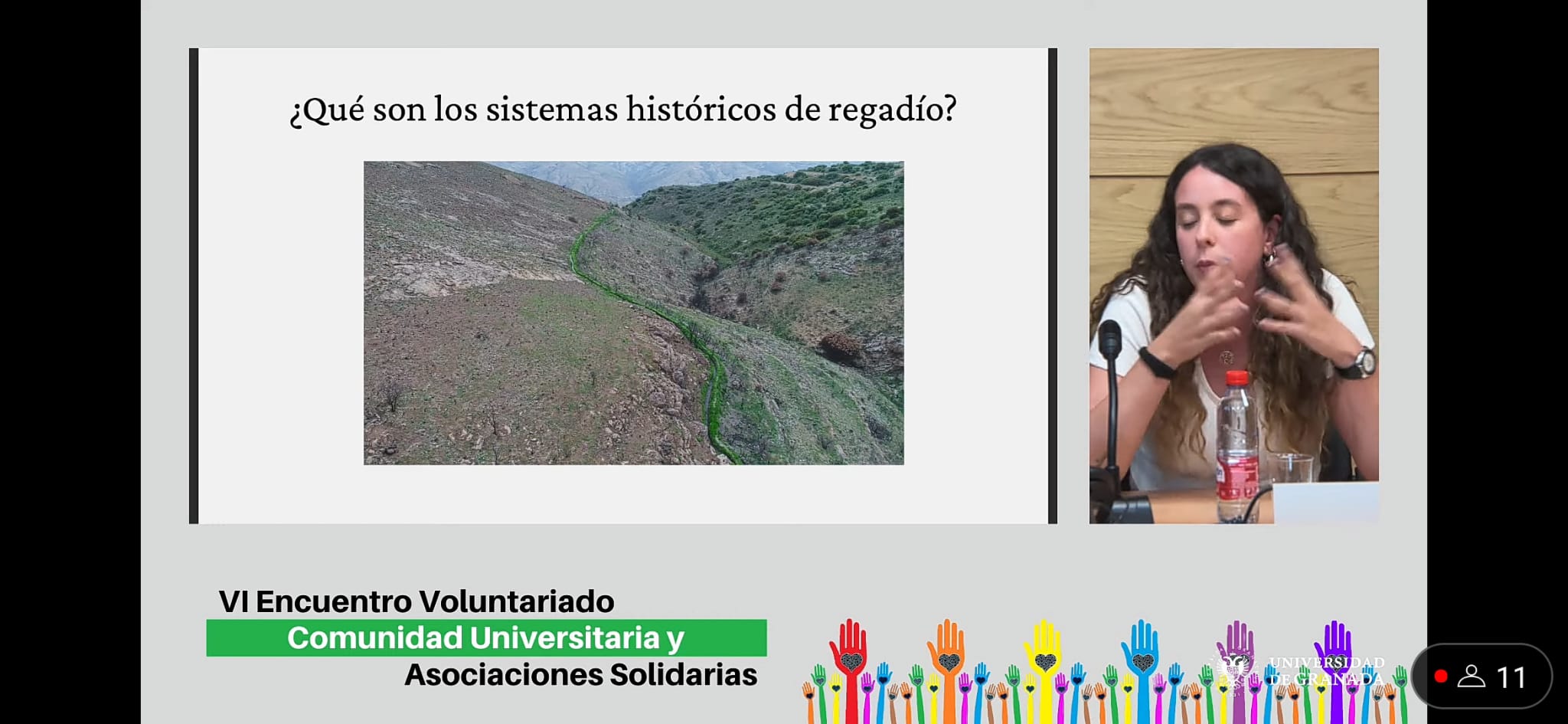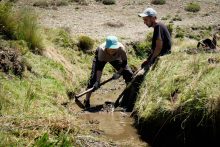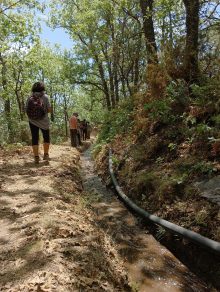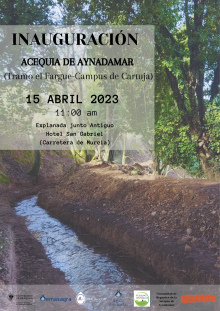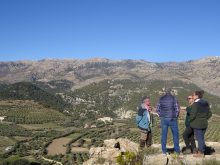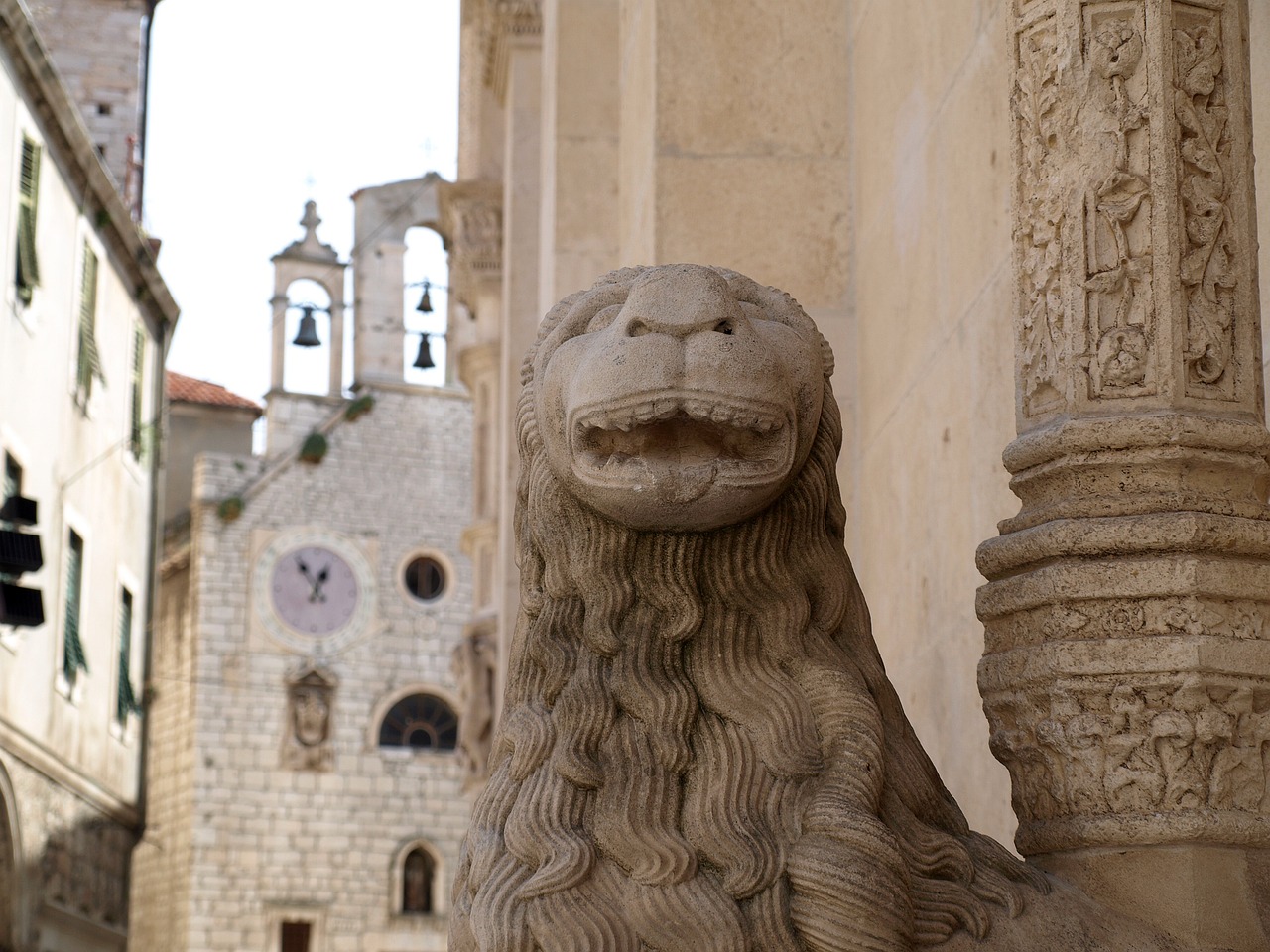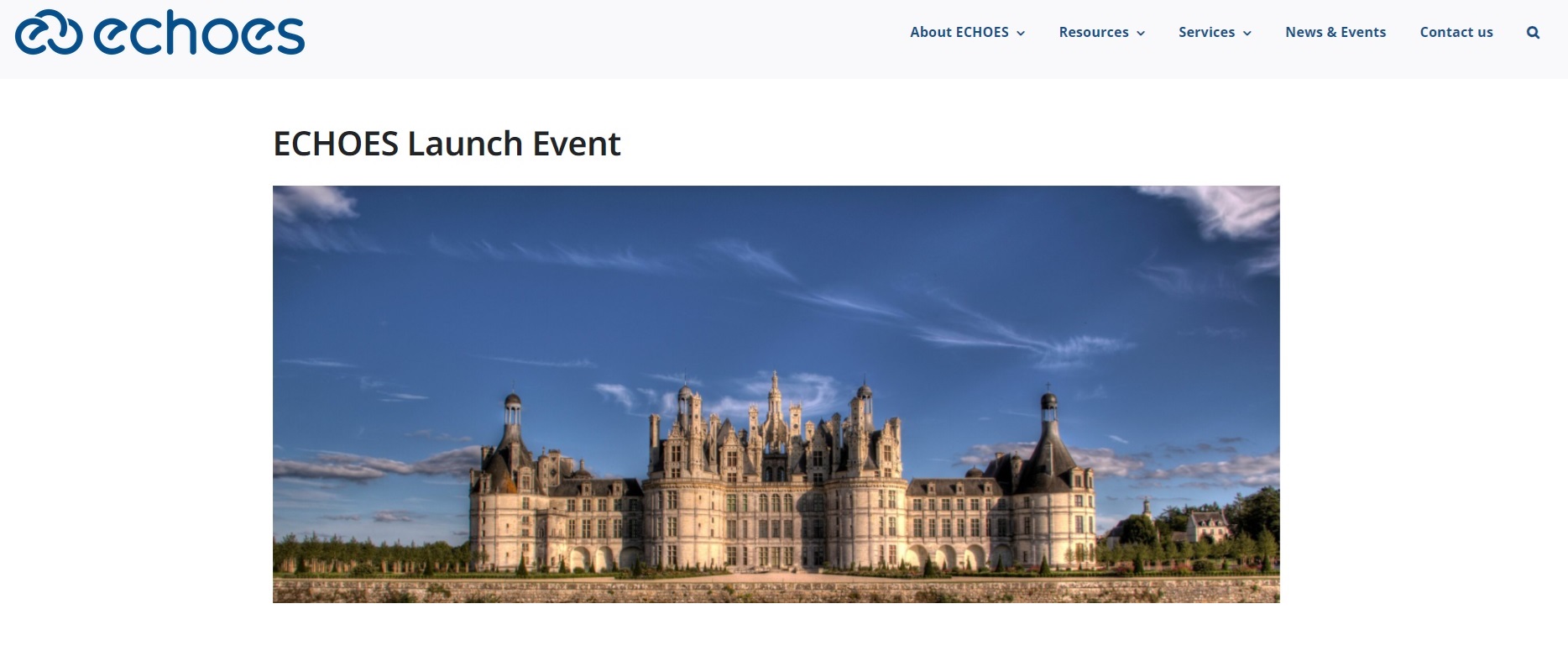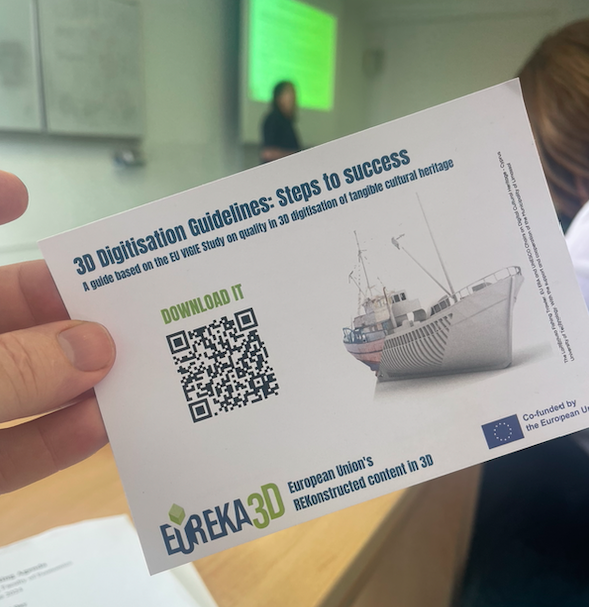images courtesy of Elena Correa Jiménez.
On 12 April 2023, Elena Correa of the MEMOLab team at University of Granada, the INCULTUM coordinator, provided a presentation of the work done in the project and on the Altiplano de Granada Pilot at the “VI Encuentro Voluntariado Comunidad Universitaria y Asociaciones Solidarias” (VI Meeting of University Community Volunteers and Solidarity Associations).
The presentation specifically focused on the recovery of historic irrigation ditches and cultural trails. This meeting was organised by UGR Solidaria and recording is available
